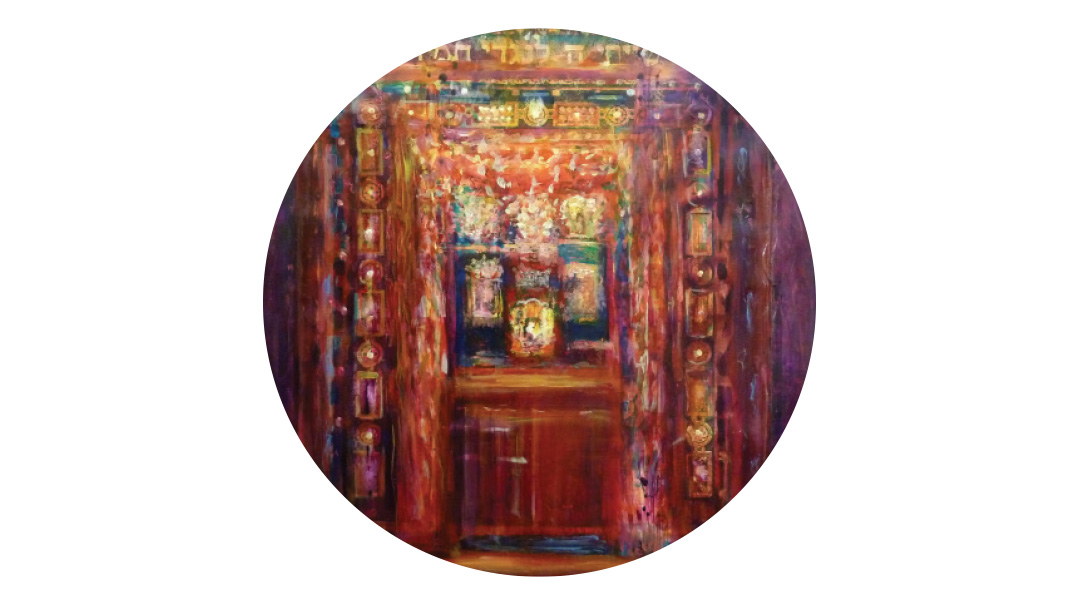Rest Assured


Shabbos menuchah means resting from gashmiyus
Several years ago we hosted a cousin and his friend for Shabbos. After the Shabbos day seudah, the friend excused himself, explaining that he had scheduled a chavrusa with a prominent rebbe.
Impressed with the bochur and silently commending my cousin on his choice of friends, I inquired as to the name of this rebbe. His droll answer was somewhat less inspiring: “Ahh, a very special rebbe indeed. He is the great Shlufener Rebbe!”
I had fallen for one of the most clichéd jokes in the annals of Jewish humor. Nonetheless, there was a highly relatable aspect to this trite witticism. For many of us, Shabbos is synonymous with sleep. Whether we turn in early on Leil Shabbos or luxuriate in an extended afternoon nap, we question the viability of a week without Shabbos to mitigate our sleep deficit. Sleeping appears to be an integral part of Shabbos.
Match Made in Heaven
Shabbos, Shabbos, yom menuchah — it is indeed a restful day. But is sleep the defining characteristic of Shabbos, the true expression of menuchah?
Perhaps, posits Rav Shimshon Pincus, the particular focus on menuchas Shabbos is a consequence of the prohibition against melachah; if we are not involved in creative activity, what else is there to do but sleep? But intuitively we recognize that this is not the case. Hashem’s pairing menuchah with Shabbos is too conspicuous to dismiss as an ancillary detail.
Why do we crave sleep? On a physical level, it’s one of the most basic of human needs. But what is the spiritual origin of our acute physical need for menuchah? In Shabbos Malkesa, Rav Pincus attributes an astonishingly novel rationale:
“The source and root of all living beings is ruchniyus… therefore [engaging in] physicality, the converse of ruchniyus, effectively distances us from our life’s source. Thus, one who engages and exerts [himself] in physical work… drains his natural energy resources [ruchniyus], resulting in exhaustion, an indication that he has distanced himself from his life source.
“Upon resting and curtailing his involvement in physicality, and even more so a person who falls asleep and his neshamah ascends to the Creator… inevitably returns to his ruchniyus life’s source, and this replenishes his depleted energy.”
Connected to the Source
It’s so easy to forget that we’re primarily spiritual beings. Physical endeavors, antithetical to our essential nature, deplete us and project us further from the source of our vitality: ruchniyus. Although conventionally menuchah suggests rest, its spiritual import is a reconnection to our spiritual power source, Hashem.
Imagine embarking on a several hours long hike. Along with a water bottle and granola bars, you make sure to pack your trusty phone. The first hour of the hike finds you placing numerous calls home. After the second hour you glance at the phone’s battery indicator and gulp — you have used up 50% of your phone’s battery power, and there’s no charging station in sight!
Despite attempts to use it more sparingly, a half hour later your phone has a mere 20% of its battery power left. How will it last the rest of the hike? Your phone’s continued functioning hinges on plugging it in to its power source.
The source and root of all living beings is ruchniyus.
After a week of hyper-involvement in the physical world, our proverbial battery pack hovers near empty. Spiritually exhausted and depleted, we are in dire need of recharging. But where will we find a venue with the requisite spiritual potency to revive ourselves?
“When yom Shabbos, yom menuchah arrives, a Jew rests and divests himself of all connection to the physical world. [He] ascends and rejoins the domain of Hakadosh Baruch Hu and the world of kedushah, recouping strength for the coming week” (Rav Pincus, Shabbos Malkesa).
Maximize the Recharge
Menuchas Shabbos is not the spiritually dignified version of a good nap. As Rav Dessler explains, far from implying rest or sleep, menuchah indicates menuchah from gashmiyus, the daylong opportunity to shut down our physical influences and endeavors, and reengage with the ruchniyus that’s our life’s source.
Perhaps this clarifies the myriad halachos and minhagim of Shabbos that preclude us from reading literature or speaking about topics that are not spiritually conducive. It would be counterproductive to desist from physical activity and interests while still actively engaging in them in conversation and leisure reading. Our selectivity in reading material, conversation topics, and other potentially “pareve” Shabbos endeavors is not a function of restrictiveness, but rather an invitation to maximize the spiritual recharge of the day.
If I’m placing myself on my battery charger for the duration of Shabbos, I want to be careful not to allow anything to inadvertently disrupt the recharge, or decrease the power flow.
At the same time, I wish to capitalize on the spiritual gifts Shabbos offers. Davening the extra tefillas Mussaf, snatching time to peruse the parshah or say Tehillim, participating in a Shabbos afternoon shiur, or even simply slowing down and focusing as I intone the words of bentshing after the seudah, can ensure that I’m engaged in the spirit of the day.
Menuchah issues from the same root as chanayah and lachnot, to park. An allusion to Klal Yisrael in the Midbar, where chanayah was the heavenly mandated rest stop that preceded their bustling journey from one destination to the next. Here menuchah implies the physical and emotional repose we dream of having on Shabbos, but, frustratingly, often fail to achieve.
For some of us, Shabbos is the most harried day of the week. Perhaps most striking is our tendency to spend the day ruminating over our current dilemmas and concerns. A day without the distractions of grocery shopping and car pool is primed for agonizing over what is not yet right in our lives, especially when the solution involves something that’s forbidden, like making a phone call or an appointment.
All Your Work Is Done
On Shabbos, Hashem enjoins us to live ke’ilu kol melachtecha asuyah (Mechilta, parshas Yisro), as if all your labor is completed. The child who desperately needs reading help, the outstanding bills, the husband unhappy at his job, the friend in need of a refuah, are not our onus. With the arrival of Shabbos. Hashem has promised to shoulder our burden for the next 25 hours, freeing us up to take pleasure in what is, and accept the limitations we have. No, we are not engaging in an elaborate denial mechanism, we are accepting Hashem’s Shabbos gift to us, the gift of menuchah.
The Shulchan Aruch (Orach Chayim 306:8) clarifies this concept: “Thinking about business concerns is permitted; nonetheless, for [the sake] of oneg Shabbos, it is considered a mitzvah to refrain from [thinking of] them at all, as it should be in your eyes as if kol melachto asuyah.”
It’s challenging to simply dismiss cumbersome thoughts of, “What will be? How will this be resolved?” and on Shabbos these thoughts are not forbidden. However, if I’m capable of surrendering my worries to Him, ke’ilu kol melachto asuyah, He will reward me.
Perhaps I can assign my most troubling thoughts a muktzeh status, refraining from thinking about them as I would abstain from any other muktzeh activity. Because today they are neither my burden nor my concern, Hashem has assumed the responsibility for their care. And I am left to relish in the menuchah of the day.
This Shabbos I will allow myself the indulgence of ke’ilu kol melachtecha asuyah, and relinquish my weekly concerns to Him. And in the ensuing calm I will embrace the opportunity to recharge my spiritual battery, nurture my spiritual self, and accept the gift of menuchah.
Originally featured in Family First, Issue 603. Mrs. Elana Moskowitz has been teaching in seminaries for nearly 20 years.
Oops! We could not locate your form.







